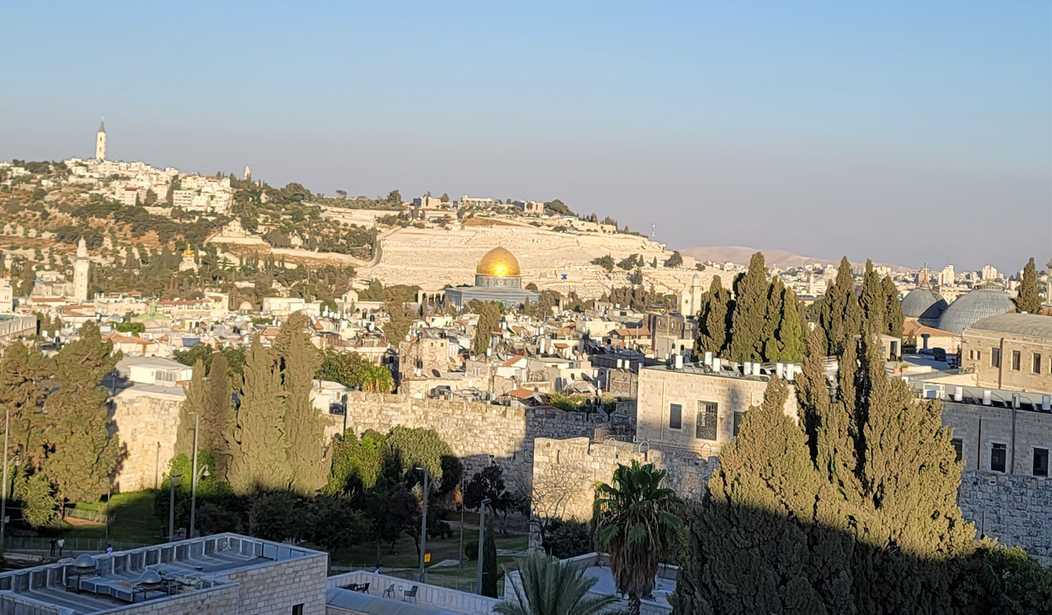On Tuesday Israeli forces killed five Palestinian gunmen in the West Bank including Wadee al-Houh, leader of a new terror group, the Lion’s Den. The battle was part of Operation Breakwater, the biggest IDF operation in the West Bank since the Second Intifada. The sustained violence and mounting Palestinian casualties have some media outlets to speculating that Israel may be on the verge of a third intifada.
Those, like myself, who lived in Israel during the Second Intifada, which lasted from 2000-2005, remember the fear of riding buses and gathering in public places. The most infamous of the Second Intifada terror attacks was a suicide bombing at a Passover dinner in Netanya, which killed 30 and injured 140. During the early 2000s, Palestinian terrorists targeted buses, cafes, and nightclubs, ultimately killing over a thousand Israelis and leaving a scar on the Israeli psyche.
Israel is fighting to prevent the violence in the West Bank from boiling over into another intifada that will paralyze Israel like intifadas past. Breakwater has involved a sustained campaign of nearly nightly raids into the West Bank, and more than 2,000 arrests since the launch of the operation in the spring. A senior Israeli security official recently told me that the goal of Breakwater is to remove the most dangerous players from the equation as part of a robust containment strategy.
Since the launch of the operation, Israel’s major cities have remained mostly insulated from the violence, largely due to the IDF’s aggressive containment strategy in the West Bank and Israel’s improved security posture. While the violence continues to spiral in the West Bank, where the number of shooting attacks has spiked this year and is rising significantly on a monthly basis, things have remained relatively quiet inside the Green Line.
Israeli populations centers are protected by the security barrier it began constructing at the height of the second intifada, which serves as a line of physical defense between Palestinian terrorists in the West Bank and Israelis inside the barrier. In the early 2000s, the number of suicide attacks fell sharply when critical sections of the barrier were erected.
Recommended
New technological advances have also made Israelis safer. The IDF recently confirmed that it is preparing to operate armed drones in counterterror operations in the West Bank, taking the place of boots on the ground.
There may be less foreign support for another round of violence. The second intifada was fueled both rhetorically and financially by Sunni Gulf states. Thanks to the new regional alliances embodied in the Abraham Accords, a future intifada would probably receive little or no support from traditional Sunni champions. Shiite Iran, on the other hand, will continue to finance, incite, and champion Palestinian terror through its proxies.
Israel’s Arab population is a wild card in this equation. Iran is arming Israeli Arabs in the hopes that they will form a fifth column against the Jewish State. Two of the terrorists who murdered Israelis earlier this year were ISIS-inspired Israeli Arabs. During the 2021 IDF conflict with Hamas in Gaza, Israeli Arabs took to the streets and violence flared between Arab and Jewish mobs in cities like Ramle, Lod, and Acre. These are troubling indicators; however, it is far from clear if the resistance narrative will galvanize Israel’s diverse Arab communities, the vast majority of whom enjoy full rights in Israel and participate in every aspect of Israel’s democracy.
Israel must continue to do everything in its power to deter another full-blown intifada. U.S. and Israeli regional allies have an important role to play by maintaining steadfast support for Israel’s right to proactively root out terrorist threats and by continuing to deny Iran sanctions relief that ultimately arms and emboldens Iranian proxies in the West Bank. Invested parties should remind Palestinians that a third intifada would play out east of the Green Line, would not receive previous levels of support from moderate Sunni regimes, and would be a losing proposition for the Palestinian people.
Enia Krivine is the senior director of the Israel Program and the National Security Network at the Foundation for Defense of Democracies. Follow Enia on Twitter at @EKrivine.
























Join the conversation as a VIP Member